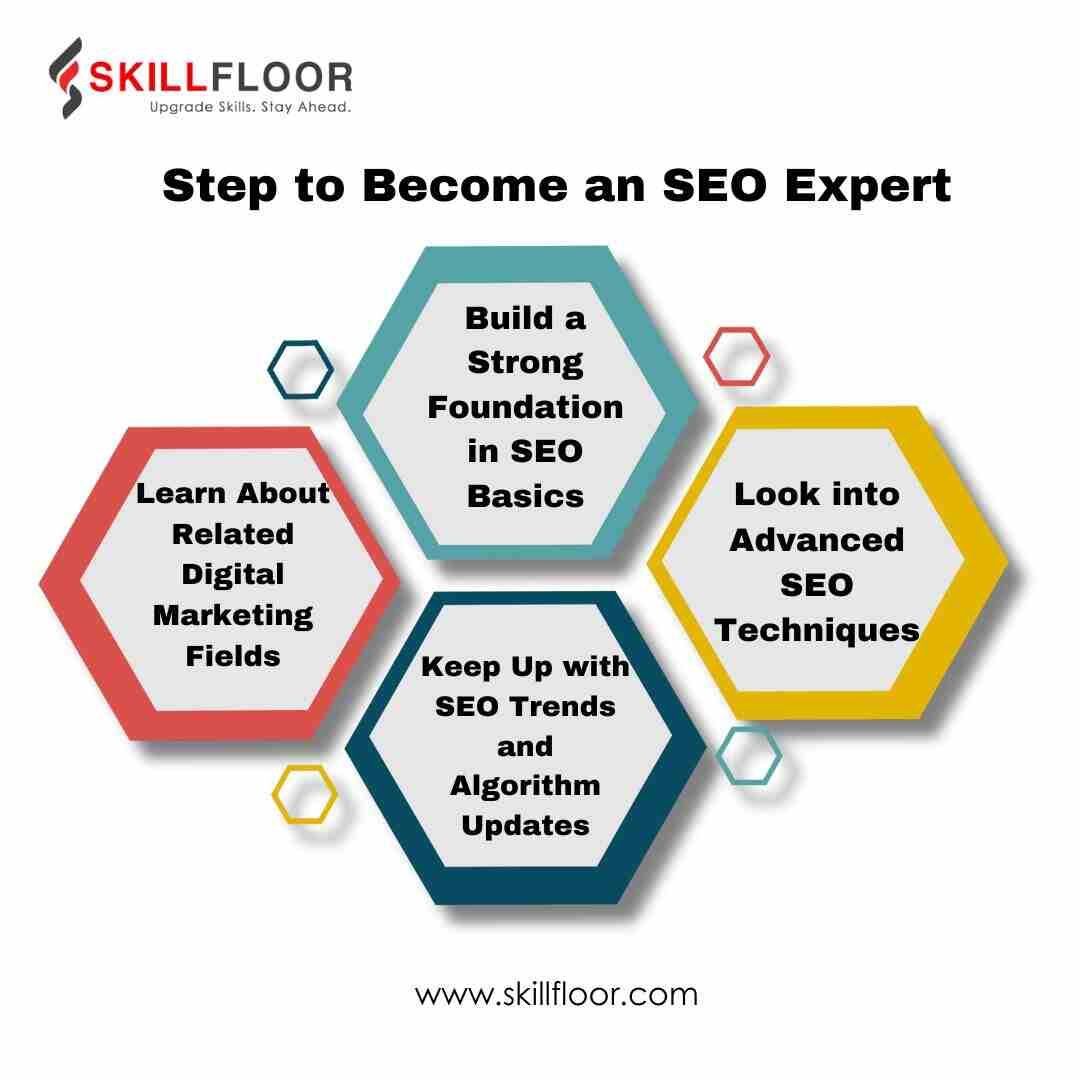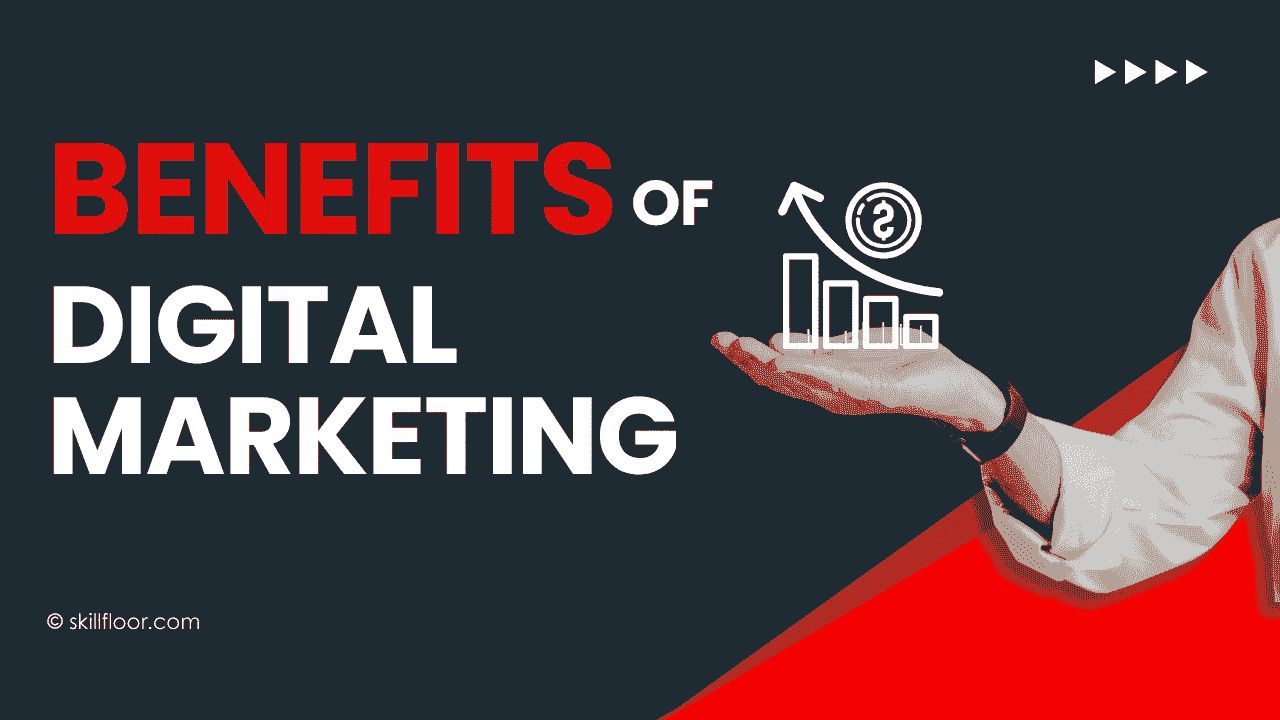How to Become an SEO Expert: Step-by-Step Guide
Learn how to become an SEO expert with our step-by-step guide. Master SEO techniques, tools, and strategies to boost your website's visibility and traffic.

Hey, Digital Adventure! Are you ready to enter the field of SEO and become an expert? If you are interested in learning about search engines and how websites can rise to the top of search results, you have come to the right place. In this step-by-step course, we will go over the most basics of understanding SEO. You'll learn how to properly study and use keywords, optimize your content and site structure, and create high-quality backlinks. We'll go over the importance of social media marketing, PPC campaigns, and email marketing in improving your SEO approach.
What Is an SEO Expert?
An SEO (Search Engine Optimization) professional understands how search engines work and may help a website rank higher on search engines such as Google. This consists of on-page SEO, off-page SEO, technical SEO, and content production. The goal is to improve organic traffic to a website by making it more visible on search engine results pages (SERPs).
Step 1: Build a Strong Foundation in SEO Basics
As with any other control, becoming an SEO master requires a good understanding of the basics
-
Keyword Research: Learn how to find and analyze the keywords your target audience uses. Tools like Google Keyword Planner and Ahrefs are essential.
-
On-Page SEO: This involves optimizing the content and HTML source code of a page. Focus on meta titles, descriptions, headers, and keyword placement.
-
Technical SEO: Understand how to improve a site’s backend structure to help search engines crawl and index your content more effectively. This includes aspects like site speed, mobile-friendliness, and structured data.
Step 2: Look into Advanced SEO Techniques
Once you've mastered the fundamentals, you can move on to more complex skills.
-
Link Building: Develop strategies to acquire high-quality backlinks from reputable sites. This boosts your site's authority and can significantly improve its ranking.
-
Content Strategy: Create content that not only targets specific keywords but also provides value to your audience. Remember, quality trumps quantity.
-
User Experience (UX): Improve your site’s usability to enhance visitor engagement and reduce bounce rates. Google's algorithm increasingly favors sites that offer a good user experience.
Step 3: Learn About Related Digital Marketing Fields
SEO does not exist in a vacuum. It is essential to understand how it interacts with other digital marketing methods.
-
Social Media Marketing: Learn how social signals (likes, shares, comments) can indirectly affect your SEO efforts. Platforms like Facebook, Twitter, and LinkedIn are powerful tools for increasing visibility.
-
PPC (Pay-Per-Click) Campaigns: Understand how PPC campaigns can complement your SEO strategy. PPC ads can provide immediate visibility while you’re working on improving organic rankings.
-
Email Marketing: Explore how email marketing can drive traffic to your website and support your SEO goals. Newsletters and email promotions are effective ways to engage your audience and encourage them to visit your site.
Step 4: Keep Up with SEO Trends and Algorithm Updates
Search engine algorithms are constantly evolving. To stay ahead, make sure you:
-
Follow SEO News: Keep an eye on SEO news and updates from sources like Moz, Search Engine Journal, and Google's own Webmaster Central Blog.
-
Join SEO Communities: Engage with other SEO professionals on forums and social media groups. Sharing insights and experiences can be incredibly valuable.
-
Experiment and Adapt: SEO is not a one-size-fits-all approach. Regularly test different strategies and adapt to what works best for your specific audience and industry.

Step 5: Gain Practical Experience
Theory is great, but practical experience is where you’ll truly learn:
-
Start a Blog or Website: Apply your SEO knowledge to your site. This hands-on experience is invaluable and allows you to experiment with different techniques.
-
Freelance or Intern: Look for opportunities to work with clients or companies on their SEO efforts. This can range from internships to freelance projects.
-
Case Studies: Analyze successful SEO campaigns to understand what strategies were employed and how they can be adapted to different scenarios.
Step 6: Measure and Analyze Your Efforts
Data-driven decision-making is key to SEO success:
-
Use Analytics Tools: Tools like Google Analytics and SEMrush help you track your site’s performance and identify areas for improvement.
-
Monitor KPIs: Key Performance Indicators (KPIs) like organic traffic, bounce rates, and conversion rates provide insight into how well your SEO strategies are working.
-
Adjust Strategies: Based on your analysis, refine and adjust your strategies to better meet your goals and respond to changes in the search landscape.
Step 7: Building a Strong Backlink Profile
Backlinks are like votes of confidence from other websites. The more quality backlinks you have, the more authoritative your site appears to search engines. But remember, not all backlinks are created equal; quality over quantity is the mantra here.
How to Earn Quality Backlinks:
-
Guest Posting: Write articles for other blogs and websites in your niche and include links back to your site.
-
Content Marketing: Create valuable, share-worthy content that others naturally want to link to.
-
Engage with Influencers: Build relationships with industry influencers who can link to your content or mention it on their platforms.
Step 8: Utilize Social Media Marketing
Social media is a powerful tool for boosting your SEO efforts. It helps increase your content’s visibility, attract more visitors, and potentially earn backlinks.
How Social Media Enhances SEO:
-
Drive Traffic: Share your content on platforms like Facebook, Twitter, and LinkedIn to drive more traffic to your site.
-
Build Engagement: Engage with your audience on social media to build relationships and encourage sharing.
-
Increase Brand Awareness: Consistent social media activity helps build your brand’s online presence and reputation.
Step 9: Understand PPC and How It Complements SEO
While SEO focuses on organic search, PPC (Pay-Per-Click) advertising allows you to pay for placement in search engine results. A well-managed PPC campaign can complement your SEO efforts by driving immediate traffic and helping you test keyword performance.
Basics of PPC Campaigns:
-
Keyword Research: Identify high-performing keywords to bid on.
-
Ad Creation: Write compelling ads that attract clicks.
-
Landing Page Optimization: Ensure your landing pages are optimized to convert visitors into customers.
Step 10: Be Constant and Patient
SEO is a marathon, not a sprint. It requires persistence, patience, and a willingness to continually learn and adapt:
-
Be Patient: Results can take time, especially when competing for highly competitive keywords.
-
Keep Learning: The digital landscape is always changing. Continuous education through courses, webinars, and reading will keep you at the top of your game.
-
Network: Build relationships with other SEO experts and digital marketers. Networking can open doors to new opportunities and collaborations.
Becoming an SEO expert is a path of study, experimentation, and flexibility. By building a strong basis, maintaining up to current on industry trends, and incorporating near digital marketing sectors such as social media marketing, PPC campaigns, and email marketing, you may improve your SEO skills and produce considerable growth for any website. Remember that each step you take gets you closer to mastering the art of SEO






























































